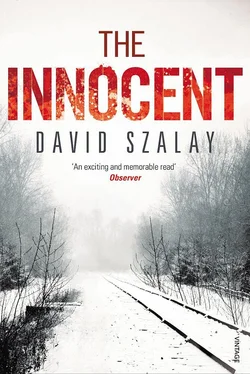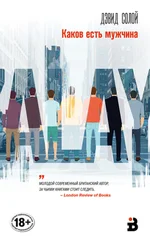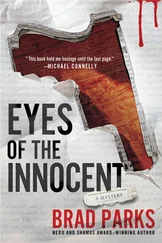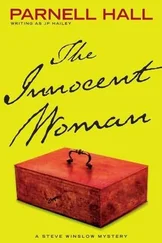‘I don’t know what makes you say that.’
‘No? What about this. You write, “Looking into the past, we are tempted to see the pre-tonal world of the seventeenth century as missing something essential, as existing in darkness, waiting for the tonal light – or at most as a series of primitive, painful steps towards the future of tonality as we know it, founded on the equal-temperament scale, as if this were somehow an end point towards which everything had been progressing from the start.” Isn’t that a denial of the very idea of progress?’
For the first time he seemed to lose his self-possession slightly. ‘Progress? I’m talking about music there. What would progress mean, in musical terms? Perhaps you’ll tell me. I don’t understand.’
‘That’s my point.’
‘What’s your point?’
‘Do you believe that history moves forward in a meaningful way?’ I said.
‘History? Perhaps.’
‘Perhaps?’ There was an uneasy silence while I turned the pages of the book. ‘You take exception to Schweitzer’s use of the word “victory”,’ I said. ‘“He inscribed the work completed in Cöthen the ‘Well-tempered Clavier’ by way of celebrating a victory …” It’s the same point, essentially. Just another instance of the subjectivism which is the keynote of the whole thing.’ I shut the book and smiled. ‘You think I’m being silly, I know. It’s not important. It’s just my little theory. I’m not planning to send this book to Moscow, if that’s what you’re worried about. When you get there you’ll be asked whether you still hold the views you expressed in your 1936 paper, and in the papers influenced by yours. You’ll be invited to disown those views. Which I don’t think you will, since they are your views, and you’re very proud and stubborn. And honest.’ He said nothing. ‘You understand, of course, that it’s impossible for someone who holds such views to occupy a prominent position in our public life. Especially in an educational establishment. And what else would you do? Work on a farm? In a factory? You’ll be sentenced to ten years. In a special prison, if you’re willing to work in one. Life is not unpleasant in those places, especially for someone like you. I mean, someone who lives for their work.’ I stood up and poured him some more tea from the little stainless-steel samovar on the trolley. He had been listening to what I said with a stony, expressionless face. Or perhaps he was not listening. He was not looking at me. ‘On a personal level,’ I said, ‘I’m very sorry that this is the situation we find ourselves in. I’ll never forget the week I spent at Metelyev Log, your kindness to me. I want to thank you for that.’
‘What will happen to my wife?’ he said.
‘Your wife?’
‘Yes.’
‘I don’t know. Nothing.’
‘If you feel we were kind to you …’ For the first time in several minutes he looked me in the eye. He was more upset than he seemed. I felt very sorry for him.
‘I’ll try to help her,’ I said.
‘Thank you.’
‘And thank you for talking to me.’ I picked up the phone. He immediately lit another cigarette. ‘Take them with you,’ I said. ‘And the matches.’ He seemed to ignore this. While I was speaking to Voronin, however, he put them in his pocket.
That was the last time I saw him. Leaving the office that night, an hour or two later, I said to Voronin, ‘Turn off his light, and make sure he has a proper pillow. He needs to sleep.’ He was taken to Moscow the next morning.
Somewhere in our talk, I’m not sure where – and of course what I have just written is only from memory and a sort of stylisation of what took place – I said to Lozovsky that there was a sentence in his book that I had particularly liked. ‘Where is it?’ I said, leafing through the pages. ‘It’s when you’re explaining the problems involved in tuning keyed instruments, which you explain very well, very lucidly. I found the whole book very interesting. You say that the problem is similar to that associated with leap years – that the smaller natural units do not fit exactly into the larger natural units – days into years, pure major thirds into octaves. And then you say, “The difference is small, but the imperfection is total.” I liked that. “The difference is small, but the imperfection is total.”’
It was in those weeks too, the last weeks of summer, that your second piece on him was published, Ivan. Much talk of ‘Cosmopolitan scum’. One morning I looked at the newspaper, and on the front page there was a picture of Lozovsky. His eyes were in shadow. He looked evil, monstrous. I don’t know exactly how you ended up writing the piece illustrated by that photograph. Only you know that. His wife saw it. She said, ‘What’s happened to Misha? Where is he?’ I said I didn’t know. Probably in Moscow. And she said, ‘I know he’s done something terrible, but I feel so sorry for him.’ It was the only time I saw her cry, standing in the window light, with her hands over her face. And then it was reprinted in ‘Pravda’! On the front page! Your name prominent! I intended to speak to you about it. I was upset and went over what I would say to you many times in my mind. I wanted to make sure that you, at least, understood that whatever else he might be – and he was not innocent – he was not the monster depicted in your text. In the end, I never did speak to you about it. Or not until the night we lost to West Germany in the football, when I tried to, and you said you had forgotten.
I think your piece influenced his fate. I thought, until I saw it, that he would be sent to a special prison, to pursue his work in well-fed obscurity, in a mansion surrounded by slash-wire in some Moscow suburb. Probably that did not seem punishment enough for ‘Cosmopolitan scum’. He went to a lumber camp in the Far East, and there, in the swamp and forest of a nameless river system, he died. That was in 1951.
Now let’s turn to 1960, and what happened then. He was posthumously judged to have been totally innocent. The judgement was issued by Khrushchev’s Supreme Court, and widely published in the newspapers. And that meant trouble for us, Ivan – for you and me. Your name was still proudly on the front page of that old edition of ‘Pravda’, there was no escaping that unfortunate fact. And I was the officer who had put together the original prosecution materials in forty-eight. No escaping that either. So what did we have to say for ourselves?
I was frightened, Ivan. I was very frightened. As you know, some people in my position were shot. That was not out of the question. The new men, Khrushchev’s men, were in power. They looked very sober as they sat in judgement on me, but I knew they were smirking inside to see me squirm. So what did I say? I said that I did not think Lozovsky was innocent. I said I thought he had held and hoped to propagate views that were profoundly inimical to the making of Communism. I said that I did not think the verdict should have been overturned. Somehow, from somewhere – perhaps from a lingering shame that I had not fought in the war – I found the strength to say those things.
I know you were frightened too, Ivan – though no journalists were being shot. You might have lost your job though. You might have been publicly vilified. So under the eyes of your judges and your peers, you said what they wanted you to say. With your hand shaking, you said the lines they had written for you – ‘What I did was wrong. And I knew it was wrong. And I’m sorry.’
What I want to know – what I have always wanted to know – is whether you meant it. Did you mean it when you said, ‘What I did was wrong. And I knew it was wrong. And I’m sorry.’ If you meant it, if you thought it was wrong when you did it – well, that’s a terrible thing to own up to, and a terrible thing to have done. And if you did not think it was wrong when you did it, then you were a liar and a hypocrite to say, twelve years later, that you did.
Читать дальше












